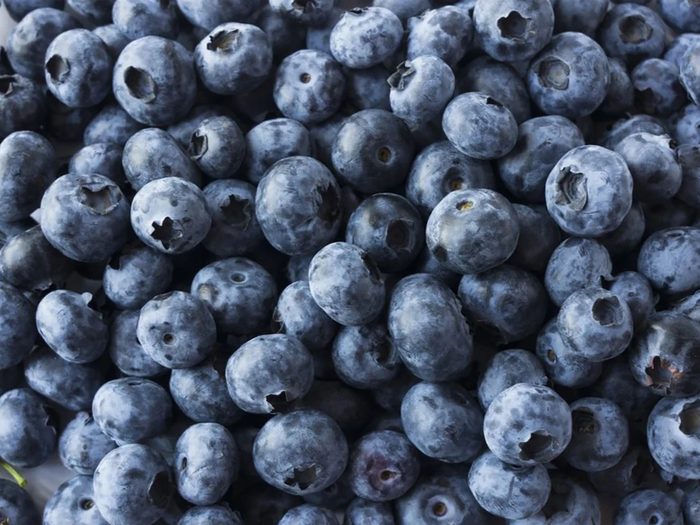
Do you know how to stay focused on what matters?
Jennifer Lee never used to have a problem staying focused. The 43-year-old senior communications strategist in Mimico, Ont., has been feeling far more scatterbrained, however, since she welcomed a new baby into her family two years ago.
“I’m saying something to my husband and halfway through, I’ve forgotten what it was,” she says. With her toddler, a 10-year-old, a full-time job and aging parents, she says her powers of concentration feel stretched to the breaking point.
Like Lee, many of us feel pulled in every direction, whether we’re being interrupted at work by the ping of our smartphones or we’re retired and managing a calendar of family obligations and appointments. While we may glorify multi-tasking, some researchers suggest that constant switching between activities takes a toll on the area of our brains responsible for emotional and cognitive regulation—and has also been associated with depression and anxiety.
But how do we reduce demands on our lives and learn how to stay focused on what matters? It’s easier said than done, but it’s not impossible.

Declutter your life
Although Lee wishes she could take tasks off her plate, she finds it hard to ignore a request for help when it comes from a loved one. For instance, her elderly father occasionally asks her to write or copy-edit documents for his seniors’ club. She squeezes the work in during her lunch hour, and then her day is more harried. “It just makes me stressed,” she admits. “I would have guilt if I told my dad I didn’t have time to help, but I end up feeling at wits’ end.”
We’re better off restricting ourselves to doing a few things that really matter rather than doing it all, says Sarri Gilman, a psychotherapist on Whidbey Island, Wash. But we may balk at reducing our load if it conflicts with our self-image as a good person.
“Helping, supporting and caring—those words sound really positive, don’t they?” says Gilman, author of the book Transform Your Boundaries. “You say no, and there’s nothing loving about that word.” She counsels her clients to tune in to what she calls their inner compass, a voice that alerts them when a boundary is being crossed.
Then, if they find it socially scary to turn someone down, she encourages them to work that fear into their response. “I say, ‘I know this may disappoint you’ before declining,” she explains. In addition to taking some of the power away from the fears, Gilman says the statement allows the person listening to feel considered.
Gilman counsels people to be proactive, looking at the month ahead in their calendar and cancelling everything that is a “no”— and then making sure also that “yes” activities are present. “Once you’ve cut ties with distractions and prioritized things you really desire, you start feeling more comfortable in your skin.”
For your emotional and bodily benefit, consider trying these stress management tips from the experts.

Nourish your concentration
We’re used to drinking coffee to heighten alertness, but too much caffeine can lead to counterproductive side effects, including anxiety, irritability and insomnia. There are other, better fuels that help the brain stay focused, says Dr. Afsoun Khalili, a naturopathic doctor in Toronto and associate professor at the Canadian College of Naturopathic Medicine.
Healthy fats are a powerful tool. While Khalili recommends consulting a health-care provider before taking new supplements, she says studies have shown that consuming omega-3 fatty acids—essential components found in the membranes of our brain’s neurons—can improve cognition and memory. These nutrients can be found in fish, such as mackerel, sardines, herring and trout, or in capsule form. Avocados, nuts and seeds, which all contain vitamin E, are also helpful for improving concentration.
Additionally, as we age, our brains become vulnerable to oxidative stress, which plays a role in cognitive decline. To combat this, Khalili suggests including darkly coloured fruits and vegetables in your diet. “The antioxidants found in blueberries specifically can cross the blood-brain barrier, which helps boost focus,” she says. Indeed, one 2018 study of adults with mild cognitive impairment who consumed blueberries every day for 16 weeks showed elevated neural activity in key areas of their brains.
All that said, for the approximately four per cent of adults worldwide who will be affected by an attention deficit disorder in their lifetime, a diet adjustment may not be enough. If you regularly have trouble finishing tasks that demand your sustained focus, or are so easily distracted that it adversely affects your life, ask your doctor about a diagnosis. Medications such as Adderall or Concerta can help shore up your focus.

Learning how to stay focused means stepping away
When it comes to productivity, we’ve long held the notion that we must keep our noses to the grindstone to get more done, but recent research shows that we’re actually better off taking frequent breaks.
According to a 2011 study by researchers at the University of Illinois, brief diversions from a task boost our ability to stay focused on that task. DeskTime, a time-tracking software firm, analyzed the work habits of the top 10 per cent of employees who use their product, based on productivity, and found they regularly took breaks—17 minutes of rest for every 52 minutes of hard work.
The catch is that a break has to be restful: that means no checking Facebook or email, according to the DeskTime study. Take a walk outside, shut your eyes and mindfully follow your breath, or just daydream. Because our brain gradually stops registering stimuli when it focuses for too long on any one thing—a sight, sound or bit of information—a restorative respite renews our ability to focus when we come back.
Lee says she now takes walks after dinner to relax, and she’s planning some day-long mini-vacations during which she won’t be responsible for anyone. She also recently made a big decision: she turned down a higher-paying job offer from a company whose location would have added at least an hour to her daily commute. “I knew I would be more scattered and tired,” she says. “They were really understanding, and I felt a lot better.”
Got no chill? Learn how to relax with these strategies that won’t cost you a dime.